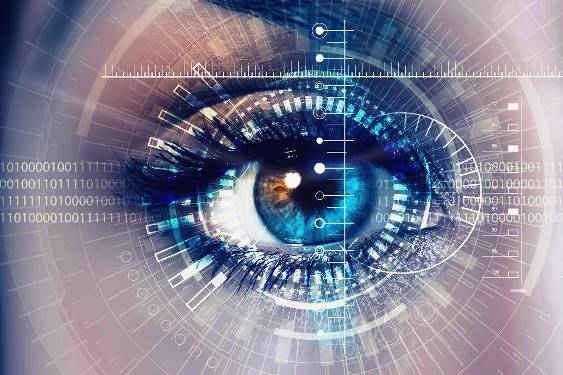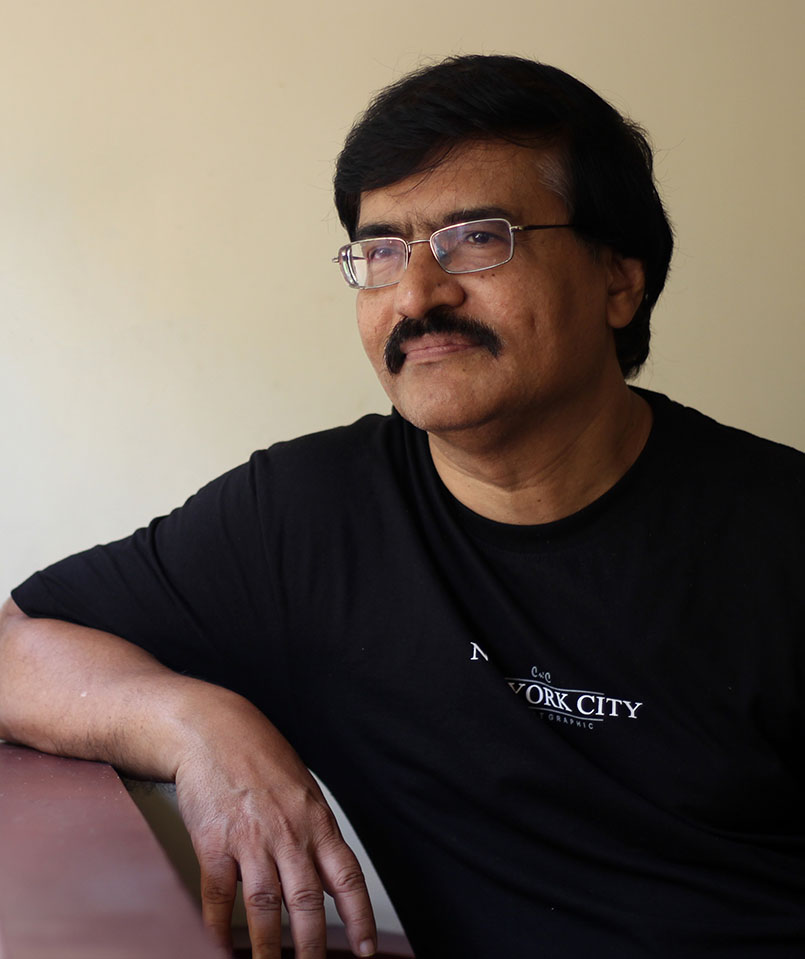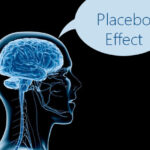“There were 5 exabytes* of information created between the dawn of civilization through 2003, but that much information is now created every 2 days.”
(Eric Schmidt, CEO of Google (2001 to 2011)).

The other day, I happened to come across this imaginary conversation between a person trying to order a pizza and, presumably, the Google Big Data Algorithm:
Caller: “`Hello! Is this Gordon’s Pizza?
Google: No sir, it’s Google’s Pizza.
Caller: Did I dial the wrong number?
Google: No sir, Google bought the pizza store.
Caller: Oh, alright – then I’d like to place an order please.
Goggle: Okay sir, do you want the usual?
Caller: The usual? You know what my usual is?
Google: According to the caller ID, the last 15 times you’ve ordered a 12-slice with double-cheese, sausage, and thick crust.
Caller: Okay – that’s what I want this time too.
Google: May I suggest that this time you order an 8-slice with ricotta, arugula, and tomato instead?
Caller: No, I hate vegetables.
Google: But your cholesterol is not good.
Caller: How do you know?
Google: Through the subscribers guide. We have the results of your blood tests for the last 7 years.
Caller: Maybe so, but I don’t want the pizza you suggest – I already take medicine for high cholesterol.
Google: But you haven’t taken the medicine regularly. 4 months ago you purchased from Drugsale Network a box of only 30 tablets.
Caller: I bought more from another drugstore.
Google: It’s not showing on your credit card sir.
Caller: I paid in cash.
Google: But according to your bank statement you did not withdraw that much cash.
Caller: I have another source of cash.
Google: This is not showing on your last tax form, unless you got it from an undeclared income source.
Caller: To HELL with your Pizza..!! ENOUGH!!
I’m sick of Google, Facebook, Twitter, and WhatsApp. I’m going to an island without internet, where there’s no cell phone line, and no one to spy on me…
Google: I understand sir, but you’ll need to renew your PASSPORT … it expired 5 weeks ago. “`
Some of us might think that the above conversation is pure fantasy since we do not believe it possible that Google or any other software system could track a random person so thoroughly and invasively. But, to a great extent this is already the reality and within a few decades, not just the activities of people but also their thoughts would be tracked. That is what Big Data is all about.
“… we are now at the confluence to two immense revolutions. On the one hand biologists are deciphering the mysteries of the human body, and in particular, of the brain and of human feelings. At the same time computer scientists are giving us the unprecedented data processing power. When the biotech revolution merges with the InfoTech revolution, it will produce Big Data algorithms that can monitor and understand my feelings much better than I can, and then authority will probably shift from humans to computers”, writes Israeli professor and author, Yuval Noah Harari in his book ’21 Lessons for the 21st Century’.
We are already familiar with armbands that can monitor the wearer’s biometric data like blood pressure, heart rate etc. It is linked through Wi-Fi to the wearer’s mobile phone through an application, which in turn is connected to a remote database. We might think that it is a convenient tool that would constantly monitor our health and give us alerts on health issues. But what people often ignore is that somewhere a Big Data Algorithm is constantly monitoring changes in your body and learning many things about your health behind you back. This data is valuable to many for making money by hawking drugs and insurance policies. In the hands of unscrupulous people, it might even become a tool for blackmailing! And nobody knows the scruples of the people operating these systems behind the iron curtain.
Today, even without the use of biometric sensors on our bodies, the most important medical decisions in our life rely NOT on our feelings of illness or wellness or on the informed predictions of our doctor – but on the calculations of our computers, which understand our bodies better than we do. Within a few decades, Big Data algorithms, by means of the constant stream of biometric data fed to it by the biometric sensors worn by people, could monitor our health 24×7. They could detect the very beginning of influenza, cancer or Alzheimer’s disease, long before we feel anything is wrong with us. They could then recommend appropriate treatments, diets and daily regimens, custom-built for our unique physique, DNA and personality.
Of course, people will enjoy the best healthcare in history, but for precisely this reason, they will probably be sick all the time. There is always something wrong somewhere in the human body. There is always something that can be improved. In the past you felt perfectly well as long as you did not sense pain or you did not suffer from an apparent physical disability. But by 2050, thanks to biometric sensors and Big Data algorithms, diseases may be diagnosed and treated long before they lead to pain or disability. As a result, you will always find yourself suffering from some ‘medical condition’ and following this or that algorithmic recommendation. If you refuse, perhaps your medical insurance would become invalid, or your boss would fire you, or governments might discontinue some of the services they offer, since the algorithm would forward the warning to your insurance company, your boss, the appropriate government departments and your mother!
As technology moves ahead, what is already happening in the field of medicine is likely to occur in more fields. The key invention is the biometric sensor, which people can wear on or inside their bodies, and which converts biological processes into electronic information that computers can store and analyse. Given enough biometric data and enough computing power, external data processing systems can hand all your desires, decisions and opinions. They would know exactly who you are – more than what you know about yourself. Incidentally, Google said on October 23, 2019, that it had achieved a breakthrough in computer research by solving a complex problem in minutes with a so-called quantum computer that would have taken today’s most powerful supercomputer ten thousand years to crack! That apparently solves the problem of the quick crunching the Big Data!
As you surf the Web, watch the YouTube or read your social media free, the algorithms will discreetly monitor you, analyse you. The Network Algorithm will know whether you are gay or straight and tell Coca-Cola that if it wants to sell you some fizzy drink, you had better use the advertisement with a shirtless guy or shirtless girl. You won’t even know. But the algorithm knows and such information will be worth billions. The algorithms can go much deeper than that. Engineers are currently developing software that can detect human emotions based on the movements of our eyes and facial muscles. And a camera to your television or laptop or mobile phone, along with the appropriate software, will know how you reacted to the things that came to your sight, be it the scenes from a movie you watch, an advertisement that you encounter, a news feed or photograph you see on the social media or a political speech or religious talk you watch on the YouTube. Your laptop and you mobile phones have built-in cameras and microphones, which the algorithm could discreetly switch on and you would never know who is watching you or listening to your conversations.
Next, connect the algorithm to biometric sensors, and the algorithm will know how each frame has influenced our heart rate, our blood pressure and our brain activity. Netflix or Amazon or whoever owns the TV algorithm will know your personality type and how to press our emotional button. Such data could enable Netflix or Amazon to choose movies for us with uncanny precision, but it could also enable them to make for us the most important decisions in life – such as what to study, where to work and whom to marry!
As scientists gain a deeper understanding of the way humans make decisions, the temptation to rely on algorithm is likely to increase. Hacking human decision-making will not only make big data algorithms more reliable, it will simultaneously make human feelings less reliable. As governments and corporations succeed in hacking human operating system, will be exposed to a barrage of precision guided manipulations, advertisement and propaganda. It might become easy to manipulate our opinions and emotions that we will be forced to rely on algorithms. In some countries and in some situations, people might not be given any choice. They will be formed to obey the decisions of Big Data algorithms. Even in allegedly free societies algorithms might gain authority because we will learn from experience to trust them on more and more issues and will gradually loose our ability to make decision ourselves. Look at the reality that within a mere two decades, billions of people have come to trust the Google search algorithm to search for relevant and trustworthy information. As we increasingly rely on Google for answers, our own ability to search for information diminishes. Today truth is defined by the top results of Google search. And we have absolutely no problems accepting that truth!
Now people ask Google to guide them around by relying on Google map and GPS. Most people relying on Google to navigate have lost the memory of the roads and intersections they had once known like the back of their hands. They cannot think of any travel without being guided by Google. The problem is, once their smartphones fail, they are stuck being completely clueless! There is this humorous story about well-educated youngsters appearing for an interview for an accounting job. The interviewer asked the candidates to tell the total of two numbers – 12 and 13. They were not allowed to use a calculator. None of the candidates could come up with the right answer. One candidate gave 21 as the answer. He came out and did the arithmetic on his calculator and found his answer wrong. But he was surprised to be told that he was selected for the post. ‘But I gave the wrong answer’, he confessed. The interviewer said, ‘you were the closest to the right answer’! The ability of people to use their faculties is like the muscles in their bodies. It they do not use it, they would lose it. But the reality is that with the ever-increasing volume of knowledge, it has become practically impossible to keep machines away. The more we advance, the more we are likely to be pawns in the hands of machines.
In the longer term, by bringing together enough data and enough computing power, the data giants could hack the deepest secrets of life and then use this knowledge not just to make choices for us or manipulate us, but also to engineer organic life and to create inorganic life forms. The apps, products and companies are often evaluated according to the data they harvest rather than according to the revenues they generate. As long as an application sucks data, it could be worth billions in the times to come. See what ‘Pegasus’, the smart spyware created by a private company in Israel has done. It has infiltrated the smart phones of people in India and other nations through a surreptitious video (missed) call and have been happily snooping on the people. This malware kept on creating records of not only the phone conversations, emails, messages, images, and social media interactions, but also secretly activated the microphones of the smart devices to eavesdrop on all kinds of conversations. And this issue is currently being discussed heatedly in the Indian media.
Businesses is attaching more value to data than to the revenues they are currently generating. “At present, people are happy to give away their more valuable asset – their personal data – in exchange for free email services and funny cat videos. It is a bit like African and Native American tribes who unwittingly sold entire countries to European imperialists in exchange for colourful beads and cheap trinkets.” Once humans come to rely on the networks and algorithms for all their decisions, for their healthcare and for their physical survival, it would become impossible to block the flow of data.
Humans and machines might merge so completely that humans will not be able to survive at all if they are disconnected from the network. They will be connected from the womb, and if later in life you choose to disconnect, insurance agencies might refuse to insure you, employers might deny you jobs, and healthcare services might refuse to take care of you. In the big battle between health and privacy, health is likely to win hands down!
As more and more data flows from your body and brain to the smart machines via the biometric sensors, it will become easy for government agencies and corporations to know you and make decisions on your behalf. Even more importantly they could decipher the deep mechanism of all bodies and brains, and thereby gain the power to engineer life. If we want to prevent a small elite from monopolising such godlike powers and if we want to prevent humankind from splitting into biological castes, the key question is who owns the data? Does the data about my DNA, my brain and my life belong to me, to the government, to a corporation or the human collective?
———————
*An exabyte is a billion gigabytes. An exabyte of storage could contain 50,000 years’ worth of DVD-quality video.
Post Script:
Much of the information presented in this article comes from the book ’21 Lessons for 21st Century’ by Yuval Noah Harari.










